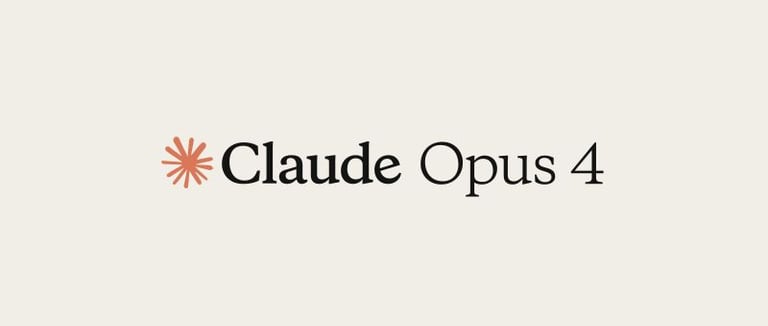Claude 4 vs GPT-4 Turbo & Gemini 2.5 Pro: Which LLM Wins?
Explore Anthropic’s Claude 4 Opus & Sonnet vs OpenAI’s GPT-4 Turbo and Google’s Gemini 2.5 Pro: benchmarks, pricing, and best use-cases.


Large language models continues to evolve at breakneck speed. On May 22, 2025, Anthropic introduced its Claude 4 family—Claude Opus 4 and Claude Sonnet 4—promising developers and enterprises significant leaps in coding prowess, agentic reasoning, and sustained performance on long-running tasks. In this blog, we’ll dive deep into Claude 4’s architecture, benchmark results, and standout capabilities, then compare these models head-to-head with leading competitors from OpenAI and Google, including GPT-4 Turbo (“o4-mini”) and Gemini 2.5 Pro. By the end, you’ll know which model best fits your development, research, or production needs.
The Claude 4 Model Family: Opus 4 and Sonnet 4
Anthropic positions Claude Opus 4 as its flagship “most powerful model yet,” tailored for intensive coding, research, and scientific discovery. It sets new records on SWE-bench (72.5%) and Terminal-bench (43.2%) while demonstrating the ability to “work continuously for several hours” without degradation in focus or output quality.
Claude Sonnet 4, on the other hand, is designed as a versatile “all-rounder,” an instant upgrade from Sonnet 3.7 for everyday coding, reasoning, and agentic workflows. Although slightly behind Opus 4 on raw benchmarks, Sonnet 4 delivers an optimal balance of performance, efficiency, and cost-effectiveness—scoring 72.7% on SWE-bench versus Sonnet 3.7’s lower mark.
Both models introduce hybrid “instant reply” and “extended thinking” modes, letting users trade latency for deeper multi-step reasoning. Extended thinking, currently in beta for Pro, Max, Team, and Enterprise tiers, allows richer internal planning—while free users still access Sonnet 4’s full capabilities, a generous move for broad experimentation.Key Capabilities and Developer Tools
Anthropic has enhanced its API ecosystem alongside Claude 4, introducing:
• Code Execution Tool: Enables on-the-fly code runs, turning the LLM into an interactive development assistant.
• MCP Connector: A standard for context exchange between AI assistants and external software environments.
• Files API: Facilitates direct AI interactions with user files (e.g., CSVs, markdown, images), vital for real-world tasks.
• Prompt Caching: Caches frequently used prompts for up to an hour, reducing compute costs and improving response speed.
These innovations underscore Anthropic’s focus on agentic AI, where models not only generate text but autonomously carry out complex, multi-step tasks over extended periods.Benchmark Performance: Claude 4 vs. Rivals
– Coding Benchmarks
• Claude Opus 4: 72.5% on SWE-bench
• Claude Sonnet 4: 72.7% on SWE-bench
• Google Gemini 2.5 Pro: ~68% on SWE-bench
• GPT-4 Turbo (o4-mini): ~65% on SWE-bench
Claude Opus 4 and Sonnet 4 lead SWE-bench, a realistic software engineering test suite, edging out Gemini 2.5 Pro and GPT-4 Turbo. In sustained coding marathons, Opus 4 demonstrated seven hours of autonomous coding in customer trials.– General Reasoning & Multimodal
• MMLU (Massive Multitask Language Understanding): Claude Opus 4 and Sonnet 4 rank near the top tier, comparable to GPT-4 Turbo, with marginal leads on specialized domains.
• Vision & Multimodal: Claude handles images and text; Gemini offers integrated image-code workflows; GPT-4 Turbo’s vision API is more limited.
Overall, Claude 4 models exhibit fewer shortcut-taking behaviors and better retention of long-term context, especially when granted Files API access.Head-to-Head: Claude 4 vs. GPT-4 Turbo (o4-mini)
• Max Context Length: Claude Opus 4 (32K) / Sonnet 4 (64K) vs. GPT-4 Turbo (128K–256K)
• Coding Performance: Claude 4 leads SWE-bench by 5–7%
• Extended Reasoning Mode: Yes (Claude) vs. No (Turbo)
• Tool Integrations: Rich API (Claude) vs. Plugins ecosystem (Turbo)
• Pricing (Input/Output): $15/$75 (Opus), $3/$15 (Sonnet) vs. ~$4/$24 (Turbo)
Verdict: GPT-4 Turbo excels in massive context scenarios—processing entire books or monolithic codebases—where Claude’s 32K–64K windows cap tasks. Yet, Claude 4’s superior coding accuracy, extended reasoning, and built-in developer APIs make it ideal for sustained, complex engineering workflows.Head-to-Head: Claude 4 vs. Google Gemini 2.5 Pro
• SWE-bench: Claude Sonnet 4 (72.7%) vs. Gemini 2.5 Pro (~68%)
• Context Window: Claude (64K) vs. Gemini (1M, expandable)
• Creative Writing & Empathy: Sonnet 4 outperforms Gemini in nuanced, empathetic outputs.
• Math & Algorithms: Gemini leads in advanced algorithmic tests; Sonnet shows strong but mixed results.
• Pricing: $3/$15 per million (Sonnet) vs. ~$1.25/$10 per million (Gemini)
Key Insights: Gemini’s vast window suits monolithic data; Claude shines in ethical communication and collaborative problem-solving; cost efficiencies vary by volume and use case.Use-Case Recommendations
Deep Software Engineering
– Choose Claude Opus 4 for critical, multi-hour coding sessions and complex agentic tasks.
– Choose Claude Sonnet 4 for day-to-day development with strong SWE-bench performance at lower cost.Large-Scale Document/Code Processing
– Choose GPT-4 Turbo or Gemini 2.5 Pro for ingesting and reasoning over hundreds of thousands of tokens in one pass.Creative & Empathetic Communication
– Choose Claude Sonnet 4 for sensitive emails, marketing copy requiring cultural nuance, or collaborative brainstorming.Budget-Conscious Bulk Tasks
– Choose Gemini 2.5 Pro for low-cost, high-volume token processing, leveraging its expansive context window and speed.
Conclusion
Anthropic’s Claude 4 models—Opus 4 and Sonnet 4—are a significant stride forward in AI coding, reasoning, and agentic performance. With best-in-class SWE-bench results, extended thinking modes, and a robust developer toolset, they stand out for sustained, sophisticated workflows. However, for ultra-large context tasks, rapid iteration, or tight token budgets, GPT-4 Turbo and Gemini 2.5 Pro remain formidable. The “best” model depends on your specific requirements—whether it’s marathon coding, empathetic communication, or processing epic volumes of data.